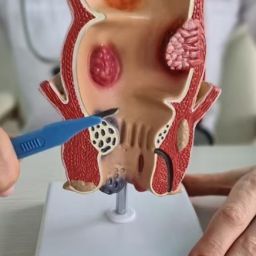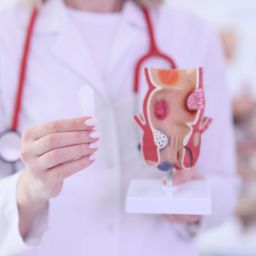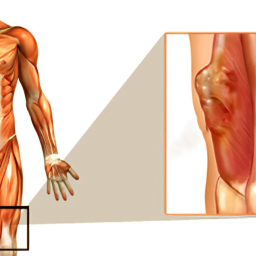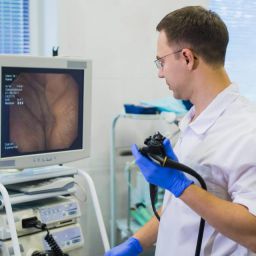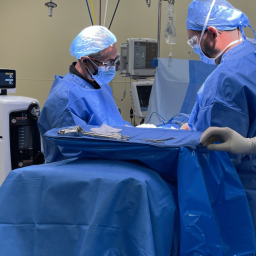
1. The Link Between Proctological Disorders and Stress
Proctological disorders often involve discomfort, pain, and sometimes embarrassment, leading to a range of emotional and psychological effects. The stigma associated with these conditions can exacerbate feelings of isolation, anxiety, and depression. The impact of these disorders goes beyond the physical symptoms, creating a complex interplay between body and mind.
1.1 The Psychological Impact of Proctological Disorders
The physical symptoms of proctological disorders—such as bleeding, itching, pain, or incontinence—can lead to a variety of emotional responses. Patients may experience:
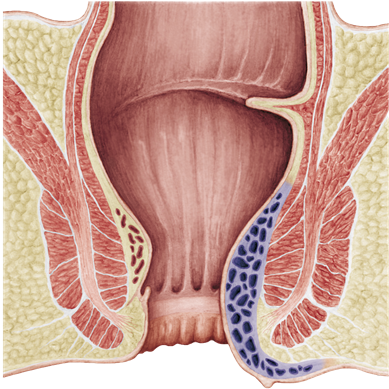
- Anxiety: The fear of exacerbating symptoms, the pain of flare-ups, or the potential for a chronic condition can increase stress and anxiety. Patients often worry about the possibility of needing surgery or facing long-term management of their condition.
- Embarrassment and Shame: Many individuals with proctological disorders feel embarrassed by the nature of their condition, especially because these issues are associated with the lower gastrointestinal tract. This can lead to social withdrawal, reluctance to discuss symptoms with others, and avoidance of social situations.
- Depression: Persistent symptoms, discomfort, and lifestyle changes can trigger feelings of sadness or hopelessness. In cases of chronic pain or severe illness, such as colorectal cancer, depression is a significant concern.
- Decreased Self-esteem: The visible or noticeable symptoms of proctological conditions, such as external hemorrhoids or anal fissures, can affect body image, leading to lowered self-esteem and body dissatisfaction.
- Sleep Disturbances: Pain and discomfort from proctological conditions can disrupt sleep, leading to further stress and mental exhaustion.
1.2 How Stress Exacerbates Proctological Conditions
Stress itself can also have a direct impact on the severity of proctological disorders. Stress can:
- Weaken the Immune System: Chronic stress can impair immune function, making the body more susceptible to inflammation or infection. This can worsen the symptoms of certain proctological conditions like proctitis or anal fissures.
- Aggravate Gastrointestinal Symptoms: Stress is known to have a profound impact on gastrointestinal function. It can lead to changes in bowel habits, including constipation, diarrhea, or IBS (irritable bowel syndrome), which can in turn aggravate existing conditions like hemorrhoids or anal fissures.
- Impact Pain Perception: Stress heightens the body’s response to pain, potentially making the discomfort caused by proctological conditions feel more intense. This feedback loop of stress and pain can significantly reduce the quality of life.
2. The Role of Psychological Support in Managing Proctological Disorders
Given the mental health implications of proctological disorders, psychological support is an essential component of a comprehensive treatment plan. Proper psychological support can help alleviate the emotional strain of these conditions, enhance coping strategies, and improve patients’ overall well-being.
2.1 Psychological Counseling and Therapy
One of the most effective ways to provide psychological support for individuals with proctological disorders is through professional counseling or therapy. Cognitive-behavioral therapy (CBT) has been shown to be particularly effective in helping patients manage stress, anxiety, and depression related to chronic health conditions. CBT works by helping patients identify and challenge negative thought patterns and behaviors, promoting healthier thinking and coping mechanisms.
2.2 Stress Reduction Techniques
There are various stress-reduction techniques that can help individuals with proctological disorders manage the emotional burden of their condition:
- Mindfulness Meditation: Mindfulness meditation can help patients focus on the present moment, reducing the tendency to ruminate on their symptoms or future worries. This practice encourages relaxation and emotional regulation, which can be helpful in managing the stress of living with a chronic condition.
- Breathing Exercises: Deep breathing exercises, such as diaphragmatic breathing, can activate the body’s parasympathetic nervous system and promote relaxation. This can help patients manage anxiety and physical discomfort associated with proctological disorders.
- Progressive Muscle Relaxation: This technique involves systematically tensing and relaxing different muscle groups in the body to reduce overall muscle tension, promote relaxation, and manage pain.
2.3 Support Groups and Peer Support
Support groups offer individuals with proctological disorders the opportunity to connect with others who understand what they are going through. These groups provide an environment where patients can share their experiences, offer advice, and support one another. The feeling of not being alone can significantly reduce feelings of isolation and help individuals feel more empowered to cope with their condition.
Online communities and social media platforms also offer virtual support networks, which can be especially beneficial for those who feel uncomfortable discussing their condition in person.
2.4 Psychoeducation
Educating patients about the psychological aspects of living with a proctological disorder can also be an important part of their treatment. By learning more about the potential emotional impacts of their condition, patients can better understand their feelings and reactions, which can reduce feelings of frustration and helplessness. Psychoeducation may include:
- Teaching patients how to recognize and address emotional stressors.
- Discussing the relationship between physical symptoms and emotional well-being.
- Offering practical strategies for managing stress and maintaining a positive outlook.
3. Coping Strategies for Patients
Effective coping strategies are essential for managing the daily challenges of living with a proctological disorder. The following strategies can help patients navigate their emotional and psychological hurdles:
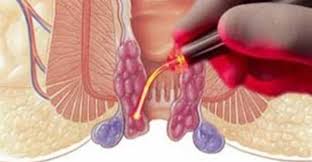
3.1 Self-care and Lifestyle Modifications
- Dietary Changes: A high-fiber diet and proper hydration are crucial for managing symptoms like constipation, which can exacerbate proctological conditions. A diet rich in fruits, vegetables, and whole grains helps prevent straining during bowel movements, which can alleviate pressure on the anal region.
- Physical Activity: Regular exercise, such as walking or swimming, can promote bowel regularity, reduce stress, and improve overall mood. It also helps prevent constipation and supports general physical health.
- Rest and Relaxation: Adequate sleep and relaxation are essential for emotional recovery and stress management. Patients should prioritize sleep hygiene and find time for activities that help them relax and unwind.
3.2 Communication and Openness
Encouraging open communication with healthcare providers is essential for proper management of proctological disorders. Patients should feel comfortable discussing their symptoms, concerns, and emotional struggles with their doctors to ensure a holistic approach to care. In addition, seeking professional psychological help or therapy can provide the necessary emotional support during the treatment journey.
3.3 Avoidance of Stigma
One of the significant emotional burdens of proctological disorders is the stigma associated with the condition. Education and advocacy can help reduce the stigma around these conditions. Patients should be encouraged to speak openly and seek help without fear of judgment.
3.4 Relaxation and Enjoyment
Taking time for personal enjoyment and relaxation can significantly enhance a patient’s psychological resilience. Engaging in hobbies, spending time with loved ones, and participating in activities that bring joy can help shift focus away from symptoms and foster a positive outlook.
4. The Importance of a Comprehensive Approach
While medical treatment for proctological disorders, such as medications or surgery, is essential for managing the physical symptoms, addressing the emotional and psychological aspects of these conditions is equally important. A comprehensive approach that incorporates both medical treatment and psychological support will provide the best outcomes for patients, improving their quality of life and overall well-being.
Healthcare providers should integrate psychological support into their care plans, recognizing that emotional health is closely tied to physical health. In addition, promoting patient education, destigmatizing proctological conditions, and encouraging self-care can play a significant role in enhancing both physical recovery and mental resilience.
Proctological disorders, though primarily physical in nature, have profound psychological effects. Stress, anxiety, depression, and other emotional struggles are common among patients dealing with these conditions. Therefore, providing psychological support is a crucial aspect of comprehensive care. By addressing both the physical and emotional needs of patients, healthcare providers can significantly improve the quality of life for individuals affected by proctological disorders. Whether through therapy, stress-reduction techniques, peer support, or lifestyle changes, managing the psychological aspect of these conditions is key to fostering resilience, reducing stress, and improving overall health outcomes.


